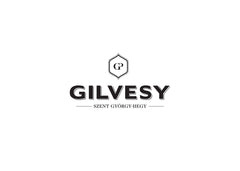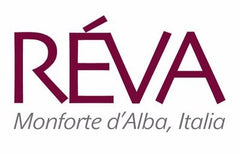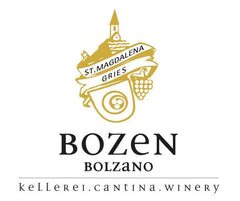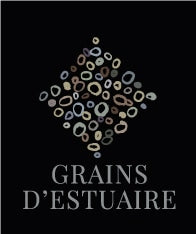338 products
- White Wine
- Olaszrizling, Pinot Gris, Riesling, Sauvignon Blanc
- Organic, Sustainable, Vegan-Friendly, Volcanic
- Light Bodied
- 750ml
- 12% alc./vol
About the Winery
Gilvesy Pincészet

Hungarian expat Róbert Gilvesy moved back to his homeland from Canada, and began building the Gilvesy winemaking empire on the former Esterházy estate on Szent György Hill. Thanks to years of hard work, the Hegymagas-based facility now includes a modern building complex and about 13 hectares of vineyards, in addition to being the home of the family. The area is shaped by 6 million years old volcanoes, where indigenous and international varieties grow organically.
Robert’s absolute admiration for nature and the terroir translates into an immense respect for the environment. By farming using organic practices, the soils and the vines stay healthy. In the winery, by letting nature take its course without controlling the processes, and using local resources, such as Hungarian oak barrels, Gilvesy promotes and protects the Balaton region.
Press Reviews
Wine Align
91 points (2021) - Michael Godel
The blend in 2021 is olaszrizling (a.k.a. welschriesling), riesling and sauvignon blanc with pinot gris no longer involved. No doubt a botanical aspect ups the complexity game away and beyond the simple norms of white blends marked by citrus and stone fruit. They are in the mix but the herbal tonic and fine bitters elevate the cuvée to speak rightly and spritely for Balaton, the Szent György Hill and Robert Gilvesy’s oeuvre. This wine is an institution now and deserves plenty of attention. Drink 2023-2026. Tasted March 2023.
91 points (2021) - Megha Jandhyala
Situated near an ancient dormant volcano, Gilvesy grows native grape varieties organically and sustainably in volcanic soils. This blend of olaszrizling, pinot gris, riesling, and sauvignon blanc is subtly reductive and mineral, with notes of freshly cut-grass, juicy grapefruits and lemons, peaches, and crunchy pears. It feels fleshy and rounded, but refreshing on the palate, with a long, pleasantly grippy finish. I like the layers of flavours here and the succulent texture. This wine is ready to drink and vegan-friendly. Tasted March 2023.
90 points (2021) - John Szabo, MS
Gilvesy's 2021 Balatoni cuvee is the customary blend of welschriesling, riesling and sauvignon blanc, crafted in an appealingly reductive, grapefruit pith and peel-inflected style, tightly wound and bone dry, mineral and fresh. I love the saltiness on the palate and the succulent acids that draw additional sips. Crunchy, fresh, lively, drinking now or hold short term. Tasted March 2023.
- White Wine
- Medium Bodied
- 750ml
Press Reviews
Wine Align
92 points - John Szabo, MS
Old vines, rolle, roussanne and grenache blanc, this is subtle and remarkably fresh white wine from the Languedoc, especially considering the hot and complicated 2023 vintage, here registered at just 12% alcohol, but it's not one of those simply early-picked, hot climate whites without flavour. The magic of balanced, old vines, resilient and capable of even quality year after tear. There's pretty extreme sapidity on offer here, a real saline blast of limestone and blinding light, and terrifically lingering finish. One of Brouca's best whites yet, drinking now but no rush - would be interesting to follow this over the next half dozen years. Tasted December 2024.
91 points - Michael Godel
Normandy-born Frédéric Brouca is one of southern France’s experimentally sound winemakers, a master of wine-styling disguise and blender of reds, whites, Rosé and also those suspected of being Rosé. Here he takes on the IGP of Hérault with a three-part blend of grenache blanc, roussanne and vermentino that speaks to the earth beneath the winemaker’s feet. Do not come here looking and surely not demanding fruit. Yes the grapes are the source, are shown the ropes and work to address our wishes but fruitiness is not the matter at hand. Elements of the earth, especially silt and salt to the “soult.” That being the core and soul of what matters in making and delivering honest wine. That this is and in a most unintentionally intentional way. Drink 2024-2027. Tasted December 2024.
91 points - Sara d'Amato
Schist-grown rolle meets roussane and grenache blanc in this cheery blend from the Faugères region of the Languedoc where French sommelier and self-taught winemaker Fréderic Brouca and his Canadian wife Elaine have set down some roots. Brimming with notes of yellow apple, lemon curd, chamomile, wildflower, lemon drop, sea salt, and mineral, this elegant and effortlessly drinkable white is notably complex and authentic. Cleanly made in a low-interventionish fashion using wild yeast and no filtration. Enjoy now in its youtful and expressive condition or hold another 2-3 years in bottle. Certified organic and vegan-friendly. Tasted December 2024.
- White Wine
- Sauvignon Blanc, Sauvignon Gris
- Organic, Vegan-Friendly
- Dry
- Medium Bodied
- 750ml
- 13% alc./vol
About the Winery
Réva

Réva is a winery based in Monforte D’Alba, within the Langhe area, in Piedmont, west northern Italy. Its aim is to bring the most brilliant young people of the area together, entrusting them with the task of expressing themselves in the most creative and professional way possible. This is Réva’s Wave, a dynamic team that represents the new Langhe generation, in constant communication with tradition, without the fear of reinterpreting it.
Today the vineyard sites which spread over 4 villages, Monforte D’Alba, Serralunga D’Alba, Novello and Barolo are all managed directly with the entire agronomic work done manually. Strong sustainable vineyards conduction, certified organic, they believe that their biggest challenge is not inventing anything but just define and express the beauty of the land where they live.
Behind every glass of wine there is an expression, expression of terroir, varietal, the varietal is for them everything, indigenous, they speak of the land and, last but not least, passion for what they do. Simply as that.
Press Reviews
Wine Align
92 points (2022) - Michael Godel
The name is Grey, representative three ways, of Réva’s Bianco label, the earth as its life giver and a sauvignon blanc meeting sauvignon gris growing from the Langhe “formation lequio.” In other words ancient Serravallian terroir come into being some 12 million years ago. Translates today as clay, limestone and fossil, adding up to and defined as grey marl. Just smells like wet stones, rich in mineral, as if after a rain. A place where ripeness means abundant and substantial fruit in cohorts with and defending the “sottosuolo” of elements below to do more than merely simulate but actually effect an authentic Langhe experience. Drink 2025-2030. Tasted May 2025
91 points (2022) - David Lawrason
This is a blend of sauvignon blanc and sauvignon gris - a highly unusual wine for the Langhe region, but a specialty of the youthfully re-imagined Reva estate in Montforte. It is an impressive, full flavoured, generous and well balanced wine with lifted aromas of guava/lychee, lemon and fresh herbs. It is very bright with lively acidity, considerable warmth and juicy, tart-edged finish. The length is excellent. A bit aggressive in the end so chill well. Tasted May 2025
91 points (2022) - John Szabo, MS
Réva's Langhe Bianco "Grey" is composed of 70% Sauvignon Gris and 30% Sauvignon Blanc, related but considered separate varieties, the former less effusively aromatic than the blanc version. It pours a pale-medium yellow gold colour, and offers maturing, bruised pineapple and binned apple aromatics in an advancing style, purposely no doubt considering Réva's commitment to natural winemaking and low intervention. It's also notably herbal, like dried mint or cold mint tea, fresh celery and other non-fruity components on a fairly rich and full-bodied frame with palpable extract - tannins - that provide some grip. Despite the advancing flavours, I'd recommend another year or two in the cellar for the palate to smooth out, and since it's not about the fruit in any case, those flavours will continue to develop in the savoury spectrum. Length is very good. Tasted May 2025.
- White Wine
- Pinot Bianco
- Sustainable
- Dry
- Light Bodied
- 750ml
- 13% alc./vol
About the Winery
Kellerei Bozen - Cantina Bolzano

Nature’s gifts must be employed with respect and understanding.
The Cantina Bolzano winegrowers have a strong focus on near-natural methods and sustainably managed vineyards. They are committed to treating the soils and vines with the greatest care. In a slow process of maturation the best results are achieved with expert helping hands: daily inspection of the vines, thoughtful pruning, careful thinning – all the little jobs that lay the foundation for a top-quality harvest. For a unique quality wine, time is all important. During months of passionate dedication on the part of our winegrowers, top quality grapes ripen in the generous sun of Alto Adige. After the harvest in autumn, the grapes are brought in and sensitive vinification begins under the watchful eye of our winemaker Stephan Filippi and his team.
With long years of experience in winemaking and a passion for the product, he creates unique and distinctive quality wines. Subtle wines that are full of character and very much in keeping with the spirit of the times.
The many accolades and awards won by the wines of Cantina Bolzano are due in no small part to Stephan Filippi’s intuitive relationship with wine and his commitment to excellence.
Kellerei Bozen - Cantine Bolzano

Cantina Bolzano, based in the town of Bolzano, traces its roots to two of Alto Adige’s most historic cooperatives: Santa Magdalena, est. 1930 and Cantina Gries, est. 1908. After deciding to merge in 2001, Cantina Bolzano was created. Bolzano is located in the middle of a valley basin surrounded by hilly vineyards that grow from 200 meters above sea level up to 1000. North and south meet in this valley, and the sun warms the stony soils with its pronounced diurnal temperatures, protecting the vines from the cold.
The average growers’ plots in Sudtirol averages only approx. 1 hectare, and the area, with its famed reputation and steep slopes, is an expensive area to farm. The member of Bolzano (approx. 300 in all) own many of the best vineyards throughout the region, including the Valle Isarco, and pool their resources to create top quality wines. And while no grower is certified organic, many practice organic viticulture and all of them adhere to natural practices in their vineyards. Most growers have lived on their farms with their families for generations. They protect their land and cultivate their vineyards as they have done for generations with total respect of the environment where they live.
Press Reviews
Wine Align
91 points - Michael Godel
Yet another stellar pinot bianco from the collective Bozen collection to present one of the better global white wine alternatives. Not for Alto Adige mind you, but there is a world out there that knows so little about the grape and here would be the place to begin a new and exciting varietal journey. Tart and at its high moments also bracing, lime spritzing here and there, fruit pungency and intensity running amok and frankly everywhere. Pulse, energy and vitality, almost as if you can here the crackling, like ice on the coldest of days. Cool climate pinot bianco rocks. Drink 2024-2026. Tasted August 2024.
90 points - Megha Jandhyala
This is a delightfully engaging pinot bianco, with clear, bright notes of golden currants, peaches, apricots, and jasmine blossoms. The palate too is bright, with appealing layers of fresh fruit. It feels pleasantly textured and fleshy, supported by uplifting acidity, while the finish is appealingly drawn out and flavourful. Tasted August 2024.
90 points - Sara d'Amato
A tart and dry style of pinot bianco, finely crafted with more intrigue than the norm. Features delicate notes of bergamot, white pepper, and the faintest touch of lees autolysis, along with citrus blossom that lingers on the finish of very good length. Offers impressive concentration and complexity that matches the premium price. Tasted August 2024.
89 points - John Szabo, MS
The reliable coop of Bolzano delivers a ripe and perfumed, gently candied citrus version of pinot blanc in the hot 2023 vintage, certainly on the softer side, carressed by creamy acids. It moves languidly across the palate, comfortably and predictably, yet lacking the mineral twang and incisive cut of the top vintages from the region, if wholly drinkable over the near term. Tasted August 2024.
- White Wine
- Chardonnay
- Sustainable, Vegan-Friendly
- Dry
- Medium Bodied
- 750ml
- 13% alc./vol
About the Winery
The Farm

“The Farm” is a 10-acre vineyard in Niagara’s Twenty Mile Bench, planted to Pinot Noir. The Neudorf vineyard was originally planted with Pinot Noir in 2000 for Le Clos Jordanne and aptly named “La Petite Colline”, meaning “little hill”, a nod to the gentle slopes that permeate the plot.
The property is rooted in traditions of gathering family & friends, and where Peter and Dora Neudorf call home .
The cellar door opens once a year for guests to taste new releases, and enjoy live music and local food.
- White Wine
- Sauvignon Blanc
- Natural, Sustainable, Vegan-Friendly
- Dry
- Medium Bodied
- 750ml
About the Winery
Grains d'Estuaire

Julien Bonneau, (Château Haut Grelot in the Blayais), and his friend Alexandre Lavigne, restaurateur in Saint-Palais-sur-Mer, created in 2014 a range of wines, Grains d'Estuaire, from 'a 10 ha vineyard located in Saint-Bonnet-sur-Gironde, in the south of Charente-Maritime.
- White Wine
- Chardonnay
- Dry
- Medium Bodied
- 750ml
- 12.7% alc./vol
About the Winery
Keint-He

Keint-he Winery & Vineyards is a boutique winery located in Prince Edward County. The winery has a strong focus on varietals that are typically grown in Burgundy, specifically Pinot Noir and Chardonnay; through which they truly express the best of the County with wonderful individual expressions. Keint-He’s approach to winemaking is as down-to-earth as it gets and their quality is second to none.





























